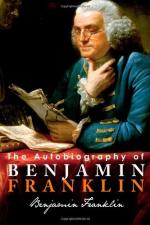As soon as I was settled in a lodging Mr. Charles had provided for me, I went to visit Dr. Fothergill, to whom I was strongly recommended, and whose counsel respecting my proceedings I was advis’d to obtain. He was against an immediate complaint to government, and thought the proprietaries should first be personally appli’d to, who might possibly be induc’d by the interposition and persuasion of some private friends, to accommodate matters amicably. I then waited on my old friend and correspondent, Mr. Peter Collinson, who told me that John Hanbury, the great Virginia merchant, had requested to be informed when I should arrive, that he might carry me to Lord Granville’s, who was then President of the Council and wished to see me as soon as possible. I agreed to go with him the next morning. Accordingly Mr. Hanbury called for me and took me in his carriage to that nobleman’s, who receiv’d me with great civility; and after some questions respecting the present state of affairs in America and discourse thereupon, he said to me: “You Americans have wrong ideas of the nature of your constitution; you contend that the king’s instructions to his governors are not laws, and think yourselves at liberty to regard or disregard them at your own discretion. But those instructions are not like the pocket instructions given to a minister going abroad, for regulating his conduct in some trifling point of ceremony. They are first drawn up by judges learned in the laws; they are then considered, debated, and perhaps amended in Council, after which they are signed by the king. They are then, so far as they relate to you, the law of the land, for the king is the legislator of the colonies.” I told his lordship this was new doctrine to me. I had always understood from our charters that our laws were to be made by our Assemblies, to be presented indeed to the king for his royal assent, but that being once given the king could not repeal or alter them. And as the Assemblies could not make permanent laws without his assent, so neither could he make a law for them without theirs. He assur’d me I was totally mistaken. I did not think so, however, and his lordship’s conversation having a little alarm’d me as to what might be the sentiments of the court concerning us, I wrote it down as soon as I return’d to my lodgings. I recollected that about 20 years before, a clause in a bill brought into Parliament by the ministry had propos’d to make the king’s instructions laws in the colonies, but the clause was thrown out by the Commons, for which we adored them as our friends and friends of liberty, till by their conduct towards us in 1765 it seem’d that they had refus’d that point of sovereignty to the king only that they might reserve it for themselves.




